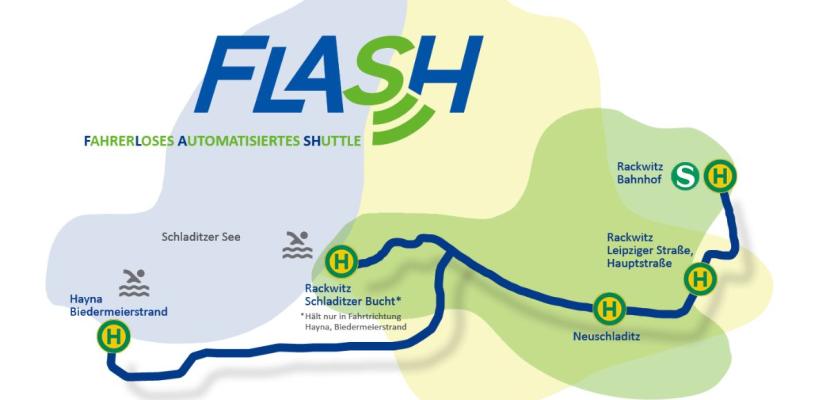
FLASH - Driverless Automated Shuttle arrives in Northern Saxony

About this good practice
FLASH is a driverless automated shuttle service introduced to address
transportation challenges in the rural area of Northern Saxony.
Resources needed
To implement such initiative, it requires total monetary cost of €1,068,115. The project received funding from governmental sources. Pilot operation required technically skilled personnel for infrastructure and vehicle maintenance, along with staff for ride assistance,
estimated at 5-8 employees.
Evidence of success
FLASH's success is clear, transitioning from pilot phase to regular service. With 1000 passengers per season and 1500 trips in 2023, acceptance is evident. Accommodating 20 passengers at 60 km/h FLASH stands out & aligns with demand. Operating costs are comparable to normal public transport with ongoing data analysis to improve the service. Punctuality is consistent. Operational safety is guaranteed through seamless manual and automated transitions. It operates April to October, 3 days a week.
Potential for learning or transfer
FLASH stands as a blueprint for rolling out self-sufficient transportation solutions in rural regions, offering valuable insights and best practices applicable to diverse communities. Its outcomes have significantly fueled the advancement and execution of sustainable mobility solutions across Central Germany, playing an indispensable role in molding local transportation transitions. As these cutting-edge technologies demand local expertise, they catalyze regional structural evolution. The revelations have illuminated a viable path for deploying automated transport systems, particularly tailored to the unique needs of rural areas in Central Germany. Future plans entail harnessing acquired experiences and technical frameworks to replicate such transport models in the vicinity and extend their accessibility to other regions. The North Saxony District is committed to amassing crucial insights and laying the groundwork for resilient transportation systems of tomorrow.
